Lost for Words IELTS Academic Reading Answers
Table of Contents

Limited-Time Offer : Access a FREE 10-Day IELTS Study Plan!
The Academic passage ‘Lost for words’ is a reading passage that appeared in an IELTS Test. Try to find the answers to get an idea of the difficulty level of the passages in the actual reading test. If you want more passages to solve, try taking one of our IELTS reading practice tests.
Lost for words
You should spend about 20 minutes on Question 1-13 which are based on Reading Passage 140 below.
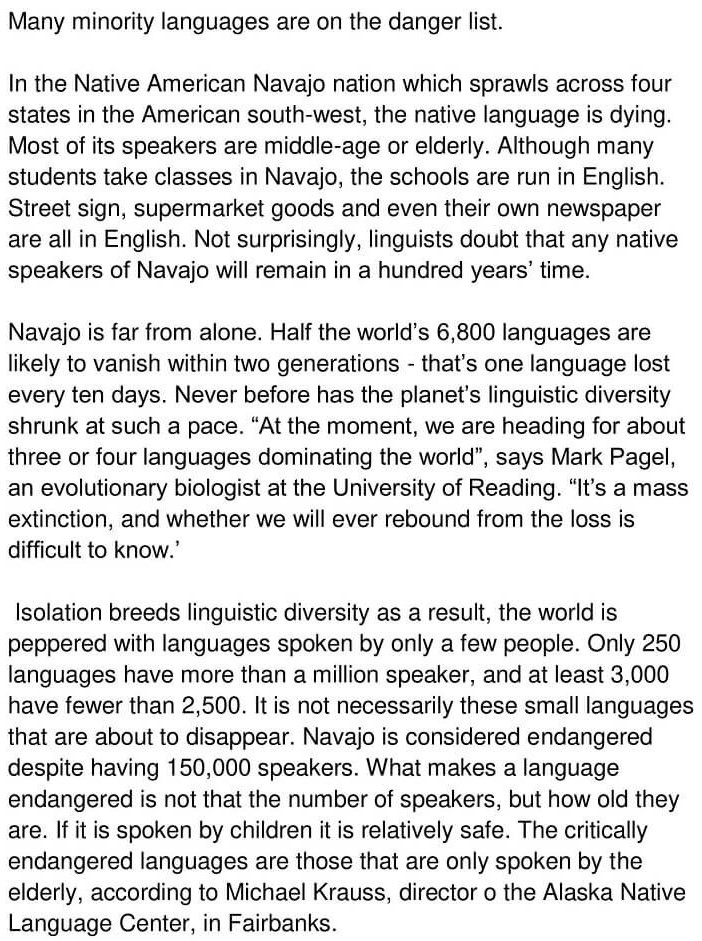

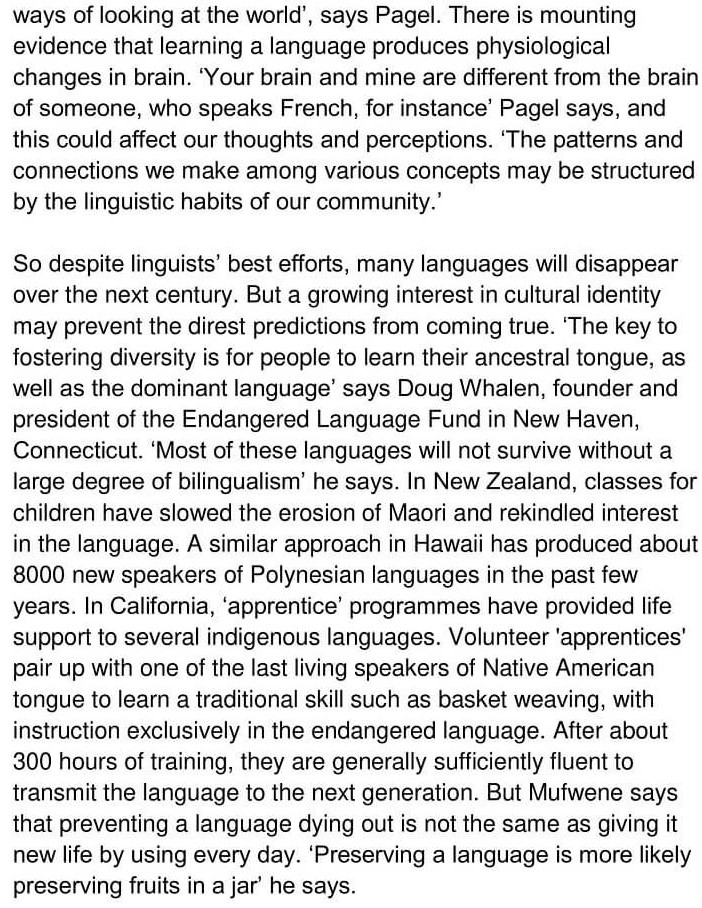
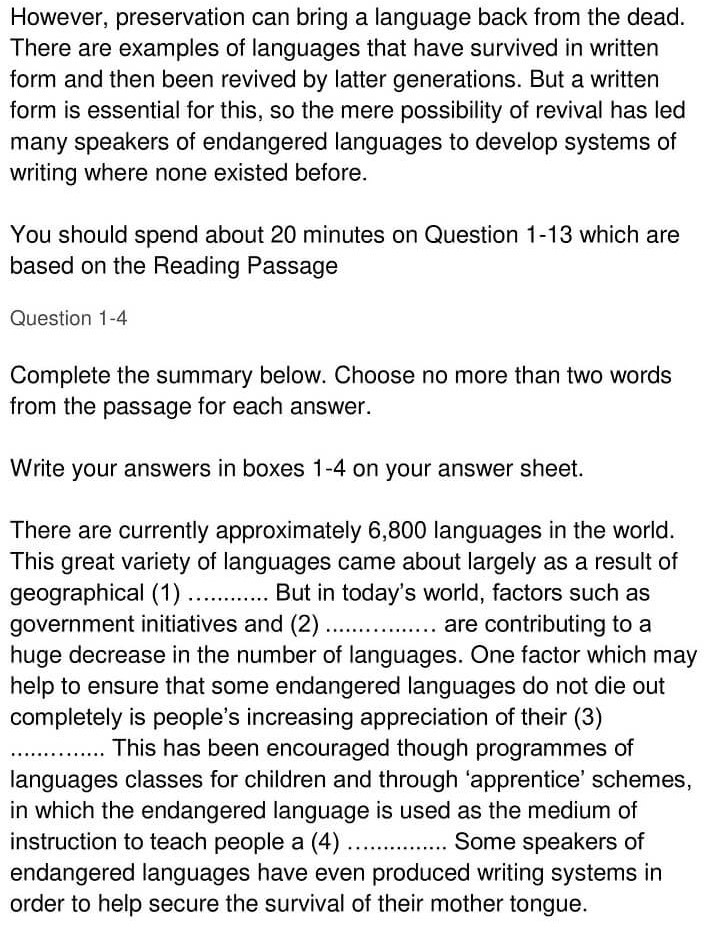
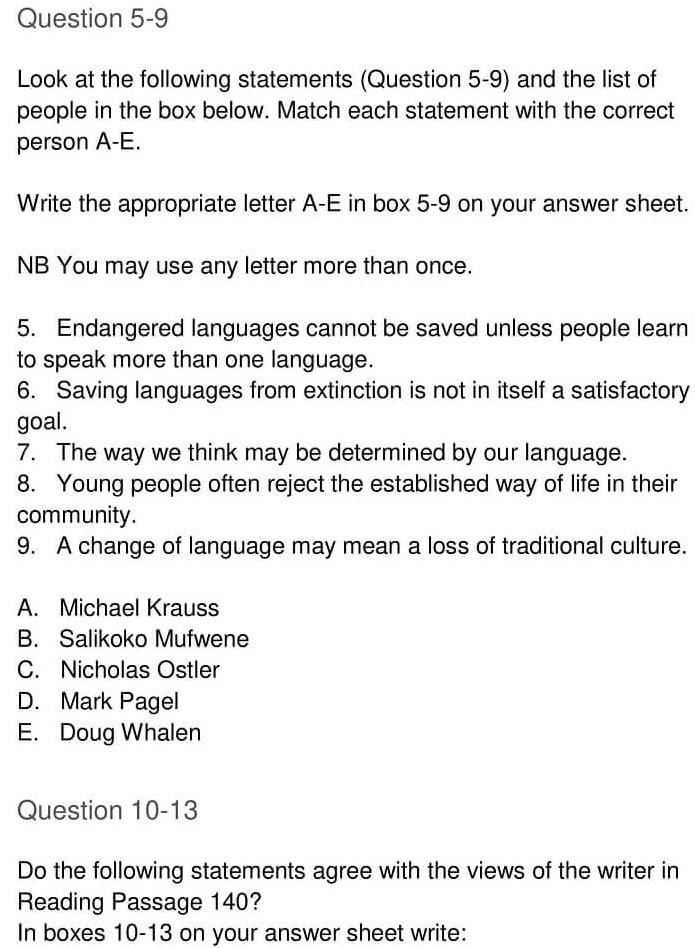
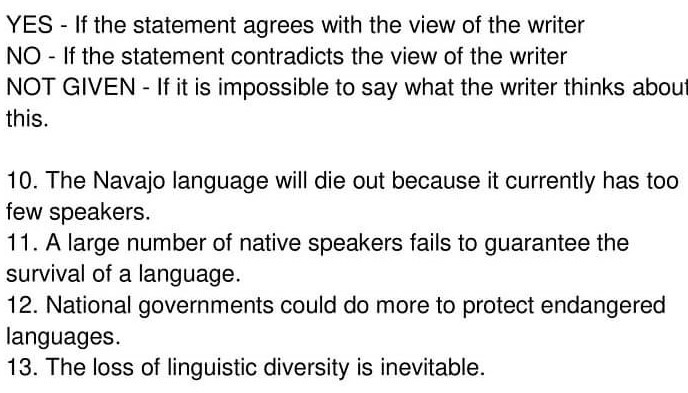
Answers
Unlock Answers
| Question Number | Answers | Explanation |
|---|---|---|
| 1. | isolation | Paragraph 3 points out that ‘isolation’ ‘breeds’ (came about largely) linguistic diversity (great variety of languages). As a result, the world is peppered with languages spoken by only a few people. Hence, the answer is ‘isolation’. |
| 2. | economic globalisation/globalization /socio-economic pressures | Paragraph 5 claims that quite often, governments try ‘to kill off a minority language’ (huge decrease in the number of languages). But Salikoko Mufwene, who chairs the Linguistics department at the University of Chicago, argues that the ‘deadliest weapon is’ not government policy but ‘economic globalisation’. He adds that Native Americans have not lost pride in their language, but they have had to ‘adapt to socio-economic pressures’ which has resulted in loss of their original languages. Hence, the answer is ‘economic globalisation/globalization /socio-economic pressures’. |
| 3. | Cultural identity | Paragraph 7 brings out the fact that a ‘growing interest’ (increasing appreciation) ‘in cultural identity’ may prevent the direst predictions of endangered languages from dying out completely. Hence, the answer is ‘cultural identity’. |
| 4. | Traditional skill | Paragraph 7 cites an example of New Zealand where language classes for children have slowed the erosion of Maori and ‘rekindled interest’ in the language. Moreover, in California, ‘‘apprentice’ programmes’ have provided life support to several indigenous languages. Volunteer ‘apprentices’ pair up with one of the last living speakers of a Native American tongue to ‘learn a traditional skill’ such as basket weaving, with instruction exclusively in the ‘endangered language’, that is, this endangered language is used as the medium of instruction to teach people/apprentices. Hence, the answer is ‘traditional skill’. |
| 5. | E | Paragraph 7 refers to the comment of ‘Doug Whalen’, founder and president of the Endangered Language Fund in New Haven, Connecticut, that the ‘key to fostering diversity’ is for people ‘to learn their ancestral tongue, as well as the dominant language’ (learn to speak more than one language). He adds that ‘most of these languages will not survive’ (will become endangered) without a large degree of ‘bilingualism (knowledge of two languages)’. Hence, the answer is ‘E’ (Doug Whalen). |
| 6. | B | The last sentence of paragraph 7 communicates Salikoko Mufwene’s belief that ‘preventing a language dying out’ (saving languages from extinction) ‘is not the same as giving it new life’, which is exciting and satisfactory. He further comments that ‘preserving a language is more like preserving fruits in a jar’, which is a very common action and does not add any extra satisfaction. Hence, the answer is ‘B’ (Salikoko Mufwene). |
| 7. | D | Paragraph 6 presents the fact that there is mounting evidence that learning a language produces physiological changes in the brain. ‘Mark Pagel’ says that ‘the patterns and connections we make among various concepts’, that is, the way we think ‘may be structured by’ (may be determined by) ‘the linguistic habits of our community’ (the language that we speak or the language of the community we live in). Hence, the answer is ‘D’ (Mark Pagel). |
| 8. | C | Paragraph 4 reveals that Nicholas Ostler, of Britain’s Foundation for Endangered Languages in Bath said that ‘people lose faith in their culture when the next generation reaches their ‘teens’ (young people of the new generation), they ‘might not want to be induced’ (reject or do not show any interest) into ‘the old traditions’ (the established way of life in their community). Hence, the answer is ‘C’ (Nicholas Ostler). |
| 9. | B | Paragraph 6 calls to attention the comment of Salikoko Mufwene that ‘language is also intimately bound up with culture’, so it may be ‘difficult to preserve one without the other’. From this comment we can conclude that he wants to say that if a change in the pattern of the language may lead to loss of the traditional culture associated with it. This view is supported by the example that he provides by saying that ‘if a person shifts from Navajo to English, they lose something’. Hence, the answer is ‘B’ (Salikoko Mufwene). |
| 10. | No | Paragraph 1 indicates that the native language of the American Navajo is dying. Most of its speakers are middle-aged or elderly. Although ‘many students take classes in Navajo’, which indicates that there are more than a few users of the language, the schools are run in English. Street signs, supermarket goods and even their own newspaper are all in English. Moreover, in paragraph 3, the writer has added that ‘Navajo is considered endangered despite having 150,000 speakers’ (a large number of speakers). So, the language will not die due to the number of speakers, rather it is dying as the young generation are educated in another language (English) and not in their native language. As the statement contradicts the views of the writer, the answer is ‘NO’. |
| 11. | Yes | In paragraph 3, the author has noted that ‘Navajo is considered endangered despite having 150,000 speakers’. This proves that even a large number of native speakers fail to guarantee the survival of a language. As the statement agrees with the views of the writer, the answer is ‘YES’. |
| 12. | Not Given | In paragraph 5, there is a reference to the government that they try to kill off a minority language by banning its use in public or discouraging its use in schools, all to promote national unity. Other than this, there is no mention of the role of the government to protect endangered languages. As it is impossible to say what the writer thinks about the statement, the answer is ‘NOT GIVEN’. |
| 13. | Yes | The first sentence of paragraph 7 mentions that despite linguists’ best efforts, ‘many languages will disappear’, that is loss of linguistic diversity is inevitable, over the next century. As the statement agrees with the views of the writer, the answer is ‘YES’. |
Check More IELTS Reading Answers
Also check :
Practice IELTS Reading based on question types

Start Preparing for IELTS: Get Your 10-Day Study Plan Today!
Explore other Reading Topics

Janice Thompson

Janice Thompson
Recent Articles

Kasturika Samanta

Kasturika Samanta

Janice Thompson







Post your Comments